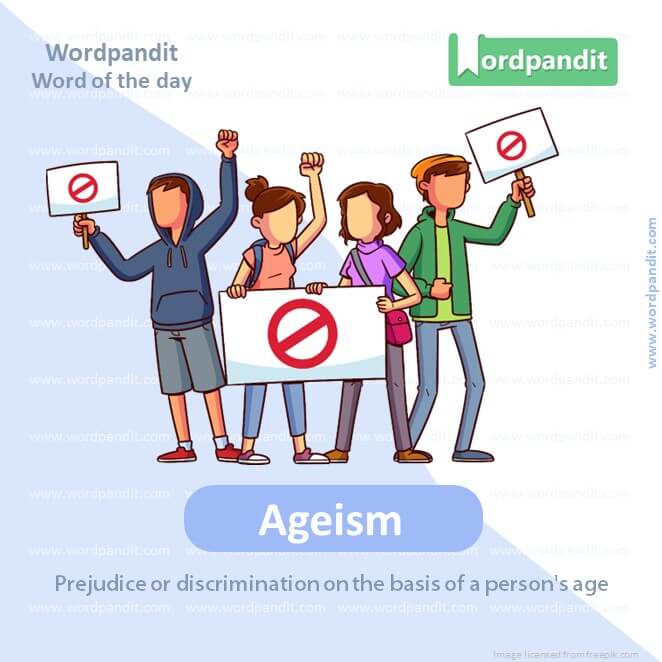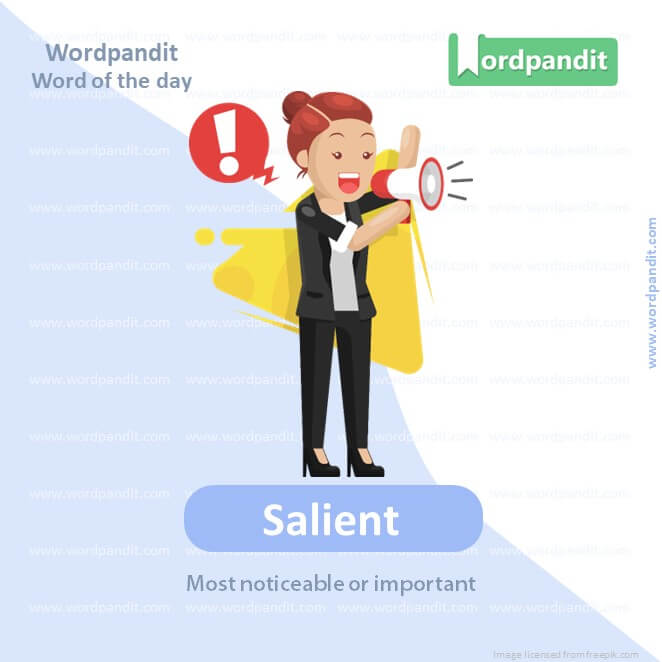Daily Vocabulary Words: List of Daily Used Words in Leading International Newspapers
Hi there. Welcome to this special section @ Wordpandit.
Our endeavour here is very simple: to highlight important daily vocabulary words, which you would come across in leading newspapers in the country. We have included the following newspapers in our selection:
• The New York Times
• The Washington Post
• Scientific American
• BBC
• The Guardian
• Psychology Today
• Wall Street Journal
• The Economist
We are putting in extensive work for developing your vocabulary. All you have got to do is be regular with this section and check out this post on a daily basis. This is your repository of words that are commonly used and essentially, we are posting a list of daily used words. Hence, this has significant practical application as it teaches you words that are used commonly in leading publications mentioned above.
Visit the website daily to learn words from leading international newspapers.

WORD-1: Ageism
CONTEXT: In a recent society-focused column in “The Times of India,” it was noted that ageism, or discrimination based on age, is a growing issue in the job market, particularly affecting those over the age of 50. – The Times of India.
EXPLANATORY PARAGRAPH: Imagine if someone didn’t like your favorite toy just because it was old or new. That wouldn’t be fair, right? Ageism is when people treat others unfairly just because of how old they are. It’s not nice to judge people based on their age!
MEANING: Prejudice or discrimination on the basis of a person’s age (noun).
PRONUNCIATION: AY-jiz-um
SYNONYMS: Age discrimination, gerontocracy, age prejudice, age-related bias, age-based prejudice.
USAGE EXAMPLES:
1. The company was accused of ageism when they refused to hire older workers.
2. It’s important to teach children about the harms of ageism.
3. Ageism can impact someone’s confidence and self-worth.
4. Movies and media sometimes promote ageism by stereotyping older individuals.

WORD-2: Biophysicists
CONTEXT: An article from the “Indian Express” discussed how local biophysicists are contributing to the global understanding of human diseases through advanced research and technology. – Indian Express.
EXPLANATORY PARAGRAPH: Biophysicists are like science superheroes! They study both biology and physics to understand how living things and the forces in nature work together. So, they look at how plants grow and how our muscles move using the knowledge of both subjects.
MEANING: Scientists who apply the principles of physics to biological problems (noun).
PRONUNCIATION: Bio-FIZZ-ih-sists
SYNONYMS: Researchers, scientists, biophysical scientists, experts, specialists.
USAGE EXAMPLES:
1. Biophysicists are researching new ways to cure diseases.
2. She dreams of becoming a biophysicist to study human cells.
3. Biophysicists often work in laboratories with advanced equipment.
4. The conference gathered biophysicists from around the world.

WORD-3: Palliative
CONTEXT: The “Hindustan Times” highlighted the increasing need for palliative care in the medical industry, emphasizing the importance of relieving not just the physical, but also the psychological suffering of terminally ill patients. – Hindustan Times.
EXPLANATORY PARAGRAPH: Imagine if you had a little boo-boo and someone gave you a band-aid. The band-aid doesn’t really heal the boo-boo, but it makes you feel better, right? Palliative is like that band-aid. It’s something that helps make a problem or pain feel better without completely fixing it.
MEANING: Relieving pain without dealing with the cause of the condition (adjective).
PRONUNCIATION: PAL-ee-a-tiv
SYNONYMS: Soothing, relieving, alleviating, comforting, mitigating.
USAGE EXAMPLES:
1. The doctor gave him a palliative treatment to ease his pain.
2. Music can have a palliative effect on a troubled mind.
3. The medicine was palliative and not a permanent cure.
4. Many patients seek palliative care during severe illnesses.

WORD-4: Salient
CONTEXT: A brilliantly crafted op-ed in “The Economic Times” underscored the salient features of India’s current economic reforms in an exert to bring clarity to the ongoing public debate. – The Economic Times.
EXPLANATORY PARAGRAPH: Imagine you have a box of crayons, and one crayon is super bright and shiny. That crayon stands out from all the others. “Salient” means something that stands out or is really noticeable compared to other things.
MEANING: Most noticeable or important (adjective).
PRONUNCIATION: SAY-lee-ent
SYNONYMS: Prominent, conspicuous, striking, noticeable, outstanding.
USAGE EXAMPLES:
1. The salient feature of the building was its tall spire.
2. She pointed out the salient points in the presentation.
3. The article failed to address several salient issues.
4. His argument had several salient points that everyone agreed on.

WORD-5: Thorny
CONTEXT: In a recent press release covered by “Mint”, the government negotiators tackled the thorny issue of trade borders, aiming to resolve it to prevent future economic discrepancies. – Mint.
EXPLANATORY PARAGRAPH: You know how some roses have pointy, prickly things called thorns? “Thorny” means something is tricky or difficult just like those thorns can be tricky to touch without getting hurt.
MEANING: Causing discomfort or distress; hard to deal with (adjective).
PRONUNCIATION: THOR-nee
SYNONYMS: Tricky, problematic, complicated, challenging, knotty.
USAGE EXAMPLES:
1. The thorny issue was debated for hours in the meeting.
2. Navigating through the dense forest was a thorny task.
3. They faced many thorny challenges while climbing the mountain.
4. The peace treaty addressed several thorny disputes.
WORD-6: Allusions
CONTEXT: A culture-focused piece in “The Times of India,” made several allusions to ancient Indian epics while discussing the prevailing themes in contemporary literature.- The Times of India.
EXPLANATORY PARAGRAPH: An allusion is like a secret hint or a whisper about something else. If someone talks about a big, strong guy and calls him “Superman” without saying he can fly or has superpowers, they’re making an allusion to the superhero without directly talking about him.
MEANING: A brief and indirect reference to something outside the text or conversation (noun).
PRONUNCIATION: uh-LOO-zhuns
SYNONYMS: References, insinuations, hints, suggestions, implications.
USAGE EXAMPLES:
1. The novel was filled with allusions to Greek mythology.
2. The artist’s work had subtle allusions to political events.
3. I didn’t understand the allusions she made during her speech.
4. Classic literature often contains allusions that modern readers might miss.
WORD-7: Deportation
CONTEXT: Recent news from “The Indian Express” shed light on a case of an illegal immigrant being faced with deportation, escalating the discussions on immigration laws in India. – Indian Express.
EXPLANATORY PARAGRAPH: Imagine if someone told you that you couldn’t stay at a friend’s sleepover and you had to go back to your home. Deportation is like that, but for grown-ups. It’s when someone is sent back to their own country from another country they were in.
MEANING: The act of sending someone back to their own country, usually because they don’t have the right to stay in another country (noun).
PRONUNCIATION: Dee-por-TAY-shun
SYNONYMS: Expulsion, ousting, exile, eviction, banishment.
USAGE EXAMPLES:
1. He faced deportation after his visa expired.
2. The government’s deportation policy has been controversial.
3. Families protested against the deportation of their loved ones.
4. Many people are afraid of the risk of deportation.
WORD-8: Hardship
CONTEXT: A contributing columnist from the “Hindustan Times” shared personal stories of locals who have overcome hardship and poverty to gain success in their respective fields. – Hindustan Times.
EXPLANATORY PARAGRAPH: Hardship is like when you have a really tough time doing something or when something sad or bad happens. It’s like trying to carry a heavy backpack for a long time, or when you lose your favorite toy. It’s when things are hard or challenging in life.
MEANING: A severe suffering or difficulty (noun).
PRONUNCIATION: HARD-ship
SYNONYMS: Adversity, difficulty, trouble, ordeal, misfortune.
USAGE EXAMPLES:
1. The family faced many hardships during the war.
2. Despite the hardships, she remained positive and hopeful.
3. Economic hardships affected the entire community.
4. He overcame numerous hardships to achieve his dream.
WORD-9: Adolescence
CONTEXT: In a recent article, the “Economic Times” addressed the impact of societal and peer pressure on adolescence and the subsequent manifestation in their mental health. – The Economic Times.
EXPLANATORY PARAGRAPH: Adolescence is a special time in a person’s life when they’re not a kid anymore but not quite an adult yet. It’s like being in between two stages. During this time, people grow a lot and learn many things about themselves and the world around them.
MEANING: The period in a person’s life when they develop from a child into an adult, usually with physical and emotional changes (noun).
PRONUNCIATION: Ad-uh-LES-ence
SYNONYMS: Teenage years, youth, puberty, young adulthood, teens.
USAGE EXAMPLES:
1. Adolescence is a time of self-discovery and growth.
2. Many people recall their adolescence with a mix of nostalgia and relief.
3. The challenges of adolescence can be overwhelming for some.
4. He wrote a book about the emotional struggles of adolescence.
WORD-10: Resilient
CONTEXT: According to an economic analysis featured in “Mint”, Indian market demonstrates resilience amidst global financial volatility, inspiring confidence in investors at the domestic and international levels. – Mint.
EXPLANATORY PARAGRAPH: Have you ever seen a bouncy ball? No matter how hard you throw it on the ground, it always bounces back up. Being resilient is like being that bouncy ball. It means even if something hard or sad happens, you bounce back and keep going.
MEANING: Able to recover quickly from difficult situations (adjective).
PRONUNCIATION: Reh-ZIL-yent
SYNONYMS: Tough, strong, robust, hardy, adaptable.
USAGE EXAMPLES:
1. She’s a resilient woman who has overcome many obstacles.
2. Plants in the desert are incredibly resilient to harsh conditions.
3. The community was resilient in the face of disaster.
4. To succeed in life, one needs to be resilient and persistent.
Vocabulary Hard Words
The experience of unraveling the depths of language learning often leads us to ‘vocabulary hard words’. These challenging jargons might seem daunting initially, but with the right learning strategies, the enigma of ‘vocabulary hard words’ can turn into an enticing quest. But how can these ‘vocabulary hard words’ be learned effectively?
Firstly, to master ‘vocabulary hard words’, it’s vital to break down the process into manageable steps. Instead of tackling several words at once, focus on understanding a few each day. This gradual approach ensures effective retention and understanding.
Multimedia resources tremendously aid in comprehending ‘vocabulary hard words’. Movies, podcasts, or even music in the target language contribute a comprehensive perspective. They provide real-life contexts and usages of ‘vocabulary hard words’, making them more understandable and less intimidating.
The incorporation of memory-enhancing techniques, such as flashcards or digital apps, can significantly bolster the retention of ‘vocabulary hard words’. Such tools encourage active recall, helping to cement these words into your long-term memory. Mnemonic devices can also aid in making these words more approachable by associating the hard words with relatable images or stories.
Practice is decisive when learning ‘vocabulary hard words’. Using these words in your conversations, written communications, or even social media posts will facilitate a robust understanding and recall.
Finally, do not worry about making mistakes while using ‘vocabulary hard words’. Mistakes are essential stepping stones in the learning process. They provide insights into areas that need more focus and help refine your grasp over these words.
In conclusion, grasping ‘vocabulary hard words’ is undoubtedly a challenging task but not an insurmountable one. With the aid of effective strategies including graded learning, multimedia resources, memory-enhancing tools, and regular practice, the process of mastering ‘vocabulary hard words’ can become an engaging and rewarding journey.







